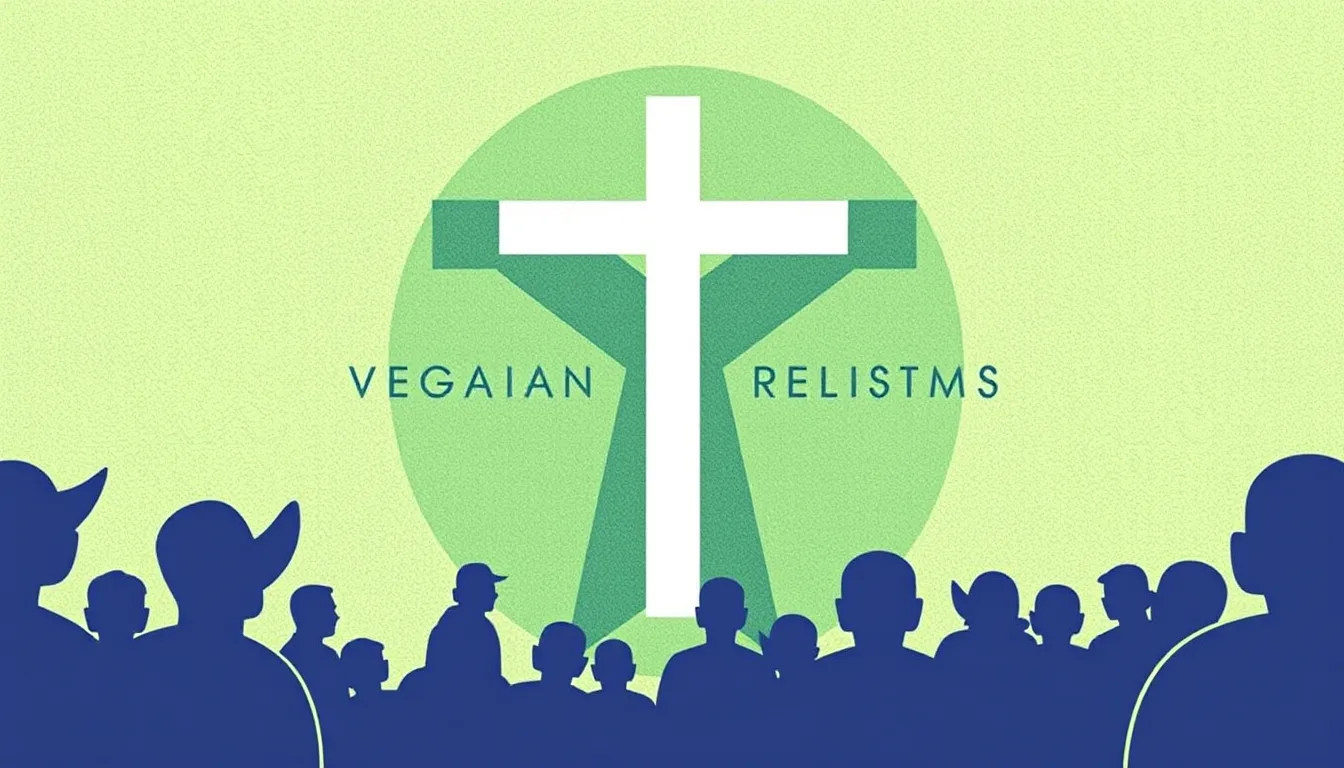Veganism, Religion, and Cults: Is Veganism the New Religion?

In recent years, veganism has surged in popularity, transcending its status as merely a dietary choice and evolving into a full-fledged movement with passionate followers. While many adopt veganism for health, ethical, or environmental reasons, there is growing concern over the increasingly cult-like behavior exhibited by some in the community. The question arises: Is veganism the new religion? And are its leaders genuinely interested in your well-being, or is there a hidden agenda at play?
The Rise of Veganism: More Than a Diet
For many, veganism started as a personal decision to avoid animal products. However, over time, it has grown into a movement that often carries moral and ethical superiority. Like many belief systems, veganism has developed a strong sense of community, identity, and advocacy. This sense of belonging can be empowering, but it can also take on extreme forms, resembling the fervor of religious zealotry. Much like religious converts, many vegans evangelize their beliefs, encouraging others to join the movement. This can foster a "we versus them" mentality, where non-vegans are viewed as outsiders or morally inferior. As with many religions, the values and principles of veganism are deeply intertwined with one’s sense of identity, making it difficult for followers to separate personal choices from the broader ideology.
Veganism's Cult-Like Behavior: Is It About Control?
Veganism, for some, has transcended dietary choice and become a rigid belief system, where deviation is met with guilt and shame—hallmarks of cult-like control
- D. Alexander
The pressure to conform within vegan communities often mirrors cult dynamics, where leaders dictate 'acceptable' behavior and dissenting voices are silenced.
- M Patel
Many experts are beginning to point out the cult-like tendencies of the more radical corners of the vegan movement. Leaders within these groups often set the tone for what is considered "acceptable" vegan behavior, creating an environment where deviation from the prescribed norms is met with hostility and exclusion. Books, podcasts, and influencers instruct followers not only on what to eat but how to argue and confront those who challenge their choices. A key characteristic of cults is the use of guilt and shame to control members. In veganism, this often comes in the form of moral arguments about the treatment of animals or the impact of animal agriculture on the environment. While these issues are undoubtedly important, the intense pressure placed on followers can create an atmosphere of fear—fear of being judged, excluded, or labeled as a “bad” person for not adhering strictly to vegan principles.
Financial Interests Behind Veganism: Who’s Really in Control?
Beyond the ethical arguments, there’s another layer to this movement—financial interests. The global plant-based food industry is booming, with vegan products generating billions of dollars in revenue each year. As with any major market, there are corporations and influencers who stand to profit immensely from the growing vegan trend. Many prominent vegan leaders are backed by corporations and interest groups with financial stakes in the plant-based industry. Whether it’s a celebrity promoting vegan products or companies pushing plant-based alternatives, there’s no denying that money plays a major role in shaping the narrative. This raises questions about whether the leaders of the movement are genuinely concerned with the health and ethics of their followers or if they are simply capitalizing on the growing demand for vegan products.
Veganism and Moral Superiority: A Divisive Mentality
Another aspect that makes veganism resemble a religion is the moral superiority that often accompanies it. Many vegans believe that their dietary choices make them more ethical or compassionate than those who consume animal products. This attitude can lead to a divisive mentality, where vegans feel compelled to "convert" others to their way of thinking, similar to religious proselytism. In extreme cases, vegan leaders encourage aggressive tactics, such as protests, online harassment, and social shaming, to target meat-eaters or those who deviate from vegan ideals. The emotional volatility seen in these behaviors is reminiscent of religious fanatics defending their faith, and it can create an atmosphere of hostility and division rather than open dialogue and understanding.
Breaking Free From Dietary Dogma
At the heart of the matter is the need for people to break free from dietary dogma—whether that’s the rigid rules of veganism or any other food ideology. It’s essential to recognize that everyone’s body, lifestyle, and ethical beliefs are different, and what works for one person may not work for another. Rather than following any one dietary movement blindly, we should all strive to make informed, individualized decisions about our health and nutrition. Veganism, like many diets, can offer great benefits when approached thoughtfully and mindfully. But it’s important to stay aware of the cult-like behaviors and financial motivations that may be influencing your choices. At Carnivore Found Me, we encourage you to explore a wide range of dietary perspectives, including the carnivore diet, to find what truly works for you. Conclusion: Is Veganism a New Religion? While veganism may not be a religion in the traditional sense, it certainly exhibits many characteristics of one, from its sense of moral superiority to the pressure exerted by leaders and peers to conform. With financial interests and cult-like behavior influencing the movement, it’s crucial to remain mindful of who’s really controlling your food choices and why. In the end, the most important thing is to nourish your body in a way that aligns with your personal health needs and ethical values, without succumbing to external pressures or guilt.
Carnivore Found Me
© Copyright 2024
Carnivore Found Me
